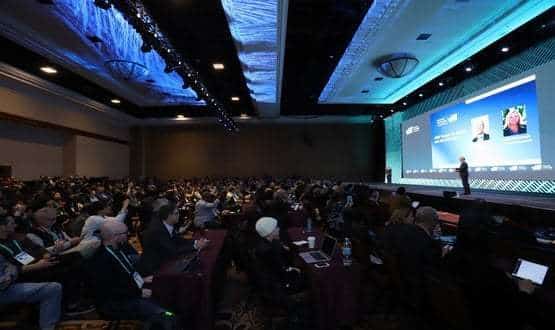Digital health and wellness continues to grow at CES 2020

Digital health and wellness features heavily at CES 2020, the gigantic consumer technology show that takes over Las Vegas this week and will be attended by around 170,000 people.
Away from the latest in high-end entertainment hardware and gadgets, peripherals and tech innovation from every facet of the economy, health forms a major part of the broader themes of smart homes, pervasive sensors, ever-smarter wearables and internet of things.
Long-term CES watchers note that the show is moving from focusing on the tech giants to how more traditional companies like Delta airlines and Daimler are innovating.
The CES Digital Health Summit, now in its tenth year, has a programme focused on how trying to make sense of the massive waves of disruption that the convergence of healthcare and technology are causing across the healthcare system, and how the citizen and consumer needs tools to navigate the fragmented landscape.
Much of the health tech featured here at CES 2020 is emerging from the blurring of the boundaries of consumer health and wellness and based on rapid evolution of AI, robotics, sensors and IOT.
What is stunning is the sheer variety of innovation and start-ups at the show, with 4,500 exhibitors and 1,200 start-ups, creating a blizzard of novel technology-based solutions for health, pointing to a fast-evolving mosaic of imaginative solutions to current health challenges.
Working out what will be the trends to watch and which innovations will win out is perhaps the biggest challenge of this fast-changing landscape.
Bisu Body Coach, for instance, is the world’s first smart urine analyser that provides personalised health advice. As the company says “Every day we flush huge amounts of info on our bodies down the toilet”.
Another sensor tech launched at the show from Brilliant Company, uses sensors, cloud and analytics “to track the quality of the air you breathe”, it’s Pico Go device is a digital therapeutic for paediatric asthma patients, offering data tracking in real-time and interventions to help management of asthma.
One UK start-up at the show is DnaNudge, which is offers consumers suggestions on what groceries to buy based on their DNA, taken by a swab, and linked to a smart band.
There are many examples to refine better technology solutions to medical conditions. Glutrac, falls in this category, as a smart wearable featuring Non-Invasive Continuous Glucose Monitoring.

Or there are any number of Carebots, robotic companions for nursing homes and home care to both monitor their ‘owners’ and tackle loneliness. Groovex’s Lovot, for instance, is described the world’s first truly friendly robot.
Other themes pushing the boundaries in Sleeptech, Sextech (which caused a storm last year when a CES innovation award was withdrawn from Lori DiCarlo) and Cannabistech, seem uniquely well-suited to Sin City.
A wide variety of sleeptech on show at CES forms part of a much wider range of wellbeing technologies, all aiming to help us better deal with the constant demands and stresses and of our 24/7 sleepless digital lives, through more tech.
Innovators in this area include Pulsewear, maker of Dreamon, “a wearable that that helps users fall asleep faster without the use of drugs”.
The decision to invite the President’s daughter Ivanka Trump to give a 2020 keynote address, overlooking many high profile female tech leaders has caused a lot of bad feeling.
Digital Health News will be reporting from CES across the week, so stay tuned.





